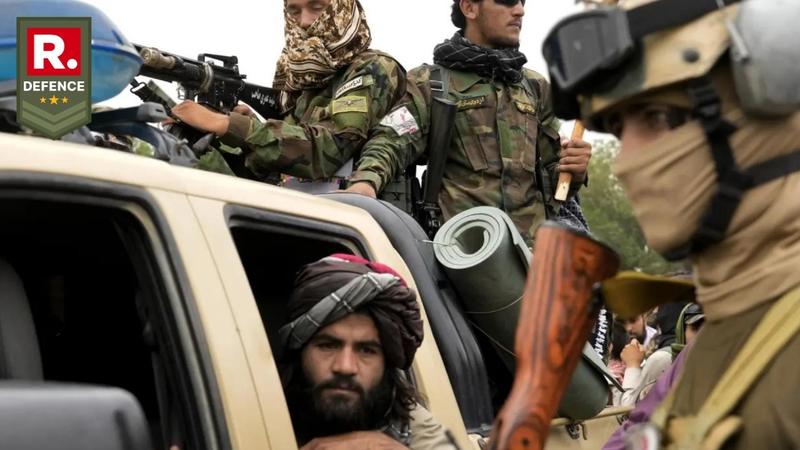Published 09:30 IST, December 26th 2024
Taliban Vows Retaliation After Pakistan’s Air Strikes Kill Women and Children in Paktika Province
Pakistan's airstrikes in Afghanistan’s Paktika province killed 46 civilians, including women and children, drawing harsh condemnation from the Afghan Taliban.

Barmal, Afghanistan — Pakistan’s latest air strikes in Afghanistan’s Paktika province have left 46 civilians dead, the majority of whom were women and children, sparking outrage and condemnation from the Taliban government. This indiscriminate assault carried out on December 24 in the Barmal district, represents yet another chapter in Pakistan’s callous disregard for human life and sovereignty.
While Islamabad claims the strikes targeted hideouts of the Tehreek-e-Taliban Pakistan (TTP) and allegedly killed 20 militants, the facts on the ground tell a different, more harrowing story. Entire families were annihilated in these strikes, with eyewitnesses reporting bodies of children pulled from the rubble and grieving survivors left homeless.
Pakistan's narrative of fighting terrorism conveniently omits the immense civilian toll and fails to address why its military is willing to inflict such carnage beyond its borders. This is not counterterrorism—it is state-sponsored aggression, and it reeks of desperation.
Afghan Taliban Slams “Barbaric” Attack
The Taliban, in their condemnation, labelled the air strikes "barbaric" and promised retaliation. Zabihullah Mujahid, the Taliban’s spokesperson, rightfully pointed out the clear violation of Afghan sovereignty. Pakistan’s continued forays into Afghan territory under the pretext of targeting militants only exacerbate tensions, undermining any semblance of regional stability.

The Taliban’s vow to defend its territory underscores a reality Pakistan seems to ignore: Afghanistan, under the Taliban, is no longer the pliable neighbour it once was.
Pattern of Escalation
This incident is part of a larger trend of Pakistan's belligerent behaviour toward Afghanistan:
- Chitral Incursion: In September 2023, TTP militants allegedly crossed into Pakistan, prompting clashes. Rather than addressing internal security lapses, Islamabad shifted the blame onto Afghanistan.
- Refugee Crisis Manipulation: Pakistan’s recent decision to deport 1.7 million undocumented Afghan refugees further exemplifies its inhumane policies. Refugees, many of whom fled violence, now face forcible expulsion amid Pakistan’s economic and political turmoil.
A Dangerous Gamble
Pakistan’s justification for these attacks—eliminating TTP hideouts—is riddled with contradictions. The TTP’s resurgence is largely the result of Pakistan’s own failed policies, including fostering militant proxies for decades. Now, as these same groups turn against their erstwhile patron, Islamabad seeks to export its problems across the border at the expense of Afghan civilians.

This strategy is not only morally bankrupt but strategically shortsighted. Air strikes that kill innocents fuel anti-Pakistan sentiment, deepen mistrust, and bolster the Taliban’s resolve to resist. It is a dangerous gamble that risks pushing the region closer to outright conflict.
The Human Cost of Islamabad's Recklessness
The devastating human toll of Pakistan’s actions cannot be overstated. In Barmal, families were wiped out, children orphaned, and homes reduced to rubble. One family reportedly lost 18 members—a tragic statistic that Islamabad’s hollow claims of “counterterrorism success” cannot erase.

For a nation grappling with its own internal crises—from political instability to economic collapse—Pakistan’s foreign policy, driven by military adventurism, is as reckless as it is unsustainable.
The international community’s muted response to Pakistan’s actions emboldens its impunity. Global powers and organizations must hold Islamabad accountable for its blatant disregard for civilian life and regional stability. Turning a blind eye to such aggression only sets a dangerous precedent.
The air strikes in Barmal are not an isolated incident but a symptom of Pakistan’s larger failure to respect international norms and address its internal challenges responsibly.
Updated 09:30 IST, December 26th 2024




